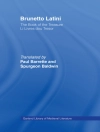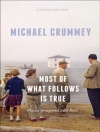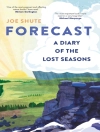In ‘Moments of Being, ‘ Virginia Woolf presents a profound exploration of consciousness and self-awareness through a series of richly woven essays and autobiographical sketches. This work exemplifies Woolf’s innovative narrative style, blending stream-of-consciousness techniques with poignant reflections on memory, identity, and the transient nature of existence. Written during a time when Woolf was grappling with her own psychological struggles, this collection aligns with modernist literature’s preoccupation with subjective reality, emphasizing the fragmented experiences that shape one’s perception of being. Virginia Woolf, a central figure in the modernist literary movement, drew inspiration from her experiences, including her mental health battles and personal connections within the Bloomsbury Group. Her distinctive voice and deep introspection are evident in this collection, which also serves as a testament to her evolving understanding of the self and the external world. Woolf’s unique background and innovative thinking cement her role as a pioneer in exploring the complexities of human emotion and identity. ‘Moments of Being’ is a compelling read for scholars and casual readers alike, offering rich insights into the nature of consciousness and a profound understanding of human experience. For anyone seeking to delve into the intricacies of identity and the significance of fleeting moments, this book is an essential addition to their library.
लेखक के बारे में
Virginia Woolf (1882-1941) stands as a pivotal figure in twentieth-century literature, emblematic of modernist thought and the Bloomsbury Group’s intellectual rigour. Her sophisticated narrative techniques and acute psychological insight distinguish her work. Woolf’s oeuvre confronts themes of feminism, mental health, and the fluid nature of time, which resonate through her innovative stream of consciousness style. Among her notable experiments with literary form is ‘Moments of Being’ — a collection of autobiographical essays published posthumously in 1976 that offers a rare glimpse into Woolf’s personal experiences and her perception of reality and existence. The title itself suggests Woolf’s preoccupation with the epiphanic quality of life’s fleeting instants, a recurring motif in her larger body of work. Woolf’s profound impact on the craft of writing is heavily observed in her essays and lectures, particularly those compiled in ‘The Common Reader’ and ‘A Room of One’s Own, ‘ which have gained critical acclaim for their forward-thinking views on women and fiction. Her novels, such as ‘Mrs. Dalloway’ (1925), ‘To the Lighthouse’ (1927), and ‘Orlando’ (1928), further secure her legacy as an innovator of narrative form and a chronicler of the human psyche.












